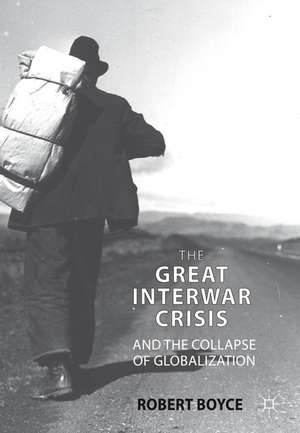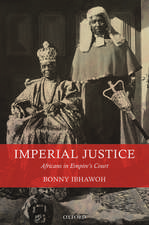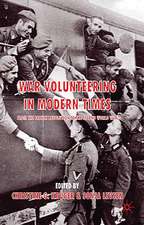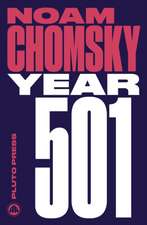The Great Interwar Crisis and the Collapse of Globalization
Autor R. Boyceen Limba Engleză Paperback – 21 oct 2009
| Toate formatele și edițiile | Preț | Express |
|---|---|---|
| Paperback (2) | 403.66 lei 6-8 săpt. | |
| Palgrave Macmillan UK – 21 oct 2009 | 403.66 lei 6-8 săpt. | |
| Palgrave Macmillan UK – 21 oct 2009 | 403.66 lei 6-8 săpt. | |
| Hardback (1) | 414.81 lei 6-8 săpt. | |
| Palgrave Macmillan UK – 21 oct 2009 | 414.81 lei 6-8 săpt. |
Preț: 403.66 lei
Nou
Puncte Express: 605
Preț estimativ în valută:
77.25€ • 79.70$ • 65.38£
77.25€ • 79.70$ • 65.38£
Carte tipărită la comandă
Livrare economică 05-19 martie
Preluare comenzi: 021 569.72.76
Specificații
ISBN-13: 9780230302433
ISBN-10: 0230302432
Pagini: 611
Ilustrații: XI, 611 p. 1 illus.
Dimensiuni: 140 x 216 x 36 mm
Greutate: 0.78 kg
Ediția:2009
Editura: Palgrave Macmillan UK
Colecția Palgrave Macmillan
Locul publicării:London, United Kingdom
ISBN-10: 0230302432
Pagini: 611
Ilustrații: XI, 611 p. 1 illus.
Dimensiuni: 140 x 216 x 36 mm
Greutate: 0.78 kg
Ediția:2009
Editura: Palgrave Macmillan UK
Colecția Palgrave Macmillan
Locul publicării:London, United Kingdom
Cuprins
List of Tables Preface Abbreviations Introduction The Liberal Powers, Peace-making and International Security, 1914-19 The Emasculation of International Security after the Great War The Limits of Globalisation The Crisis Begins, 1927-29 The Crisis, September 1929 - April 1931 In the Eye of the Storm, May 1931 – February 1932 The Collapse of the Postwar Order, 1932 - 34 Conclusion: From the Great Interwar Crisis to the Present Bibliography
Recenzii
'This is a splendid piece of scholarship, finely written, exhaustively researched, and interpretively bold. With his emphasis upon the symbiotic relationship of economics and politics, Boyce sees in the late 1920s the real beginnings of the drift toward a new war, and the Anglo-Americans as especially important players in that slow-motion collapse.'
- Robert J. Young, University of Winnipeg
'Robert Boyce merits the gratitude of all students of the 1930s for his ambitious effort to bring economics and finance together with diplomacy. In offering this exquisitely detailed and lavishly footnoted volume to the public, Boyce faced a difficult strategic choice. He could have simplified the argument, cut the text to half the length, abbreviated the notes, and addressed a general audience. Instead, he chose to give scholars the unabridged benefit of his strenuous archival labors. The book thus constitutes a vast quarry in which the specialist will find a wealth of material touse and reprocess'
- Stephen A. Schuker, H-Diplo
'The subject of Robert Boyce's thoughtful, deeply researched book is the failure of the victor powers in the First World War to create effective mechanisms to ensure global stability. '
- History Today, Adam I.P. Smith, Senior Lecturer in History at UCL
- Robert J. Young, University of Winnipeg
'Robert Boyce merits the gratitude of all students of the 1930s for his ambitious effort to bring economics and finance together with diplomacy. In offering this exquisitely detailed and lavishly footnoted volume to the public, Boyce faced a difficult strategic choice. He could have simplified the argument, cut the text to half the length, abbreviated the notes, and addressed a general audience. Instead, he chose to give scholars the unabridged benefit of his strenuous archival labors. The book thus constitutes a vast quarry in which the specialist will find a wealth of material touse and reprocess'
- Stephen A. Schuker, H-Diplo
'The subject of Robert Boyce's thoughtful, deeply researched book is the failure of the victor powers in the First World War to create effective mechanisms to ensure global stability. '
- History Today, Adam I.P. Smith, Senior Lecturer in History at UCL
Notă biografică
ROBERT BOYCE taught International History at the London School of Economics, UK, for many years as well as at the University of Toronto, Canada,and the Institut d'Etudes Politiques in Paris, France. He is a member of the scientific committee of the Maison des Sciences de l'Homme at Dijon, France.














